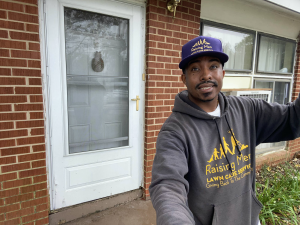We are more emotionally vulnerable than ever.
The Doomsday Clock, established in 1947 by atomic scientists at the University of Chicago, is a symbol representing the world’s vulnerability:
“The Clock has become a universally recognized indicator of the world’s vulnerability to global catastrophe caused by manmade technologies.” Bulletin of Atomic Scientists
Sadly, the bad news is:
“The Clock now stands at 90 seconds to midnight—the closest to global catastrophe it has ever been.” (January 24, 2023)
The scientists warn for:
“A time of unprecedented danger: It is 90 seconds to midnight,”
No wonder so many people feel emotionally disturbed and unbalanced.
Emotions are the experiences that something of value is happening to you (LeDoux, 2019). It seems that what is happening to us is exceptional insecurity, according to the world’s leading experts. Our emotions express our susceptibility to global disruption. Our emotions must motivate our possible choices of action.
But what choices do we have when uncertainty and fear colonize our mind? What can we do in a world that many feel is extremely beyond our control? Is it very normal that we feel so fragile, insecure, and confused about the future; that we feel more emotionally vulnerable than ever? There is no escaping our experience of the significance of unprecedented danger. This feeling deeply shapes who we are and what we do every moment.
Is Our Society Emotionally Dysregulated?
There are many moments when our emotional life is severely challenged. Today, too many young people around the world feel vulnerable. Where I live, in Belgium, the heart of Europe, the young generation is getting psychiatricdiagnoses earlier and earlier. There are waiting lists of up to two years to get a diagnosis. Attention disorders, autism spectrum disorders, sleeping disorders, and anxiety disorders are more prevalent than ever. Young people’s need for emotional support at school has increased significantly.
article continues after advertisement
Belgian psychiatrist Dirk De Wachter, author of Borderline Times, contends that if one applies the DSM-5 criteria for a borderline personality disorder to our society, we are undoubtedly living in borderline times. Our society meets the same criteria by which we categorize individuals, leaving no doubt that our society is emotionally dysregulated, according to psychiatric measuring instruments.
As the British Psychological Society states (2009): Borderline personalitydisorder is also known as emotionally unstable personality disorder. A core characteristic of BPD is affective instability, which generally manifests “as unusually intense emotional responses to environmental triggers, with a slower return to a baseline emotional state” (Hooley J, Butcher JM, Nock MK, 2017).
Emotion dysregulation is at the heart of BPD but it is also a major pathological featuret of several other psychiatric disorders, reflecting similar disturbance in the underlying neurobiology. Indications of emotional dysregulation include: severe depression, anxiety, high levels of shame and anger, self-harm, high-risk sexual behaviour, extreme perfectionism, conflict in interpersonal relationships, eating disorders, suicidal thoughts or attempts, excessive substance use (WebMD Medical Team).
Emotion regulation, on the other hand, is an exercise in cultivating a healthy buffer of time between feeling an emotion and reacting to that emotion. For example, pausing to gather your thoughts before choosing to respond is healthy. Another example is waiting to respond until you are able to process what you really feel.
article continues after advertisement
No wonder young people’s need for support from those who are emotionally competent is greater than ever. Is the emotional insecurity of today’s society blocking the healthy growth of the new generation? Living in borderline times is just one reflection that our world is more vulnerable than ever, as the Doomsday Clock indicates.
Why are our policy makers not putting emotion regulation at the top of the education agenda?
A Deeper Look at Emotion Regulation
The Swiss Center for Affective Sciences at the University de Geneva, founded by Klaus Scherer, a leading emotion researcher for many decades, focuses on emotional competence instead of emotional intelligence. “As part of our rethinking of EI, we suggest reframing the concept in an existing theory of emotions that considers them to be valuable and necessary to decision makingand motivating behaviour.”
Emotional competence is broken down into three components: appraisal competence, regulation competence, and communication competence, based on Scherer’s Component Process Model of Emotion (2007)..
- Appraisal competence happens when we evaluate a situation correctly and react with a suitable emotion based on an understanding of the emotion.
- Regulation competence happens when we use the most suitable strategy to regulate and manage our emotions in a given context.
- Communication or expression competence happens when we send appropriate and unambiguous signals to encourage others to interact.
Is Emotional Competence the Master Skill We Seek?
Inspired by the Doomsday Clock, two artists, Andrew Boyd and Gan Golan, created a Climate Clock in Manhattan. The New York Times wrote: “Metronome’s digital clock in Manhattan has been reprogrammed to illustrate a critical window for action to prevent the effects of global warming from becoming irreversible.”
Our world seems to have many urgent agendas. Let us apply the global warming question to emotional competence: What is our critical window for action to prevent the effects of emotional dysregulation from becoming irreversible?
It seems to me that emotional competence is the skill we need to turn the Doomsday Clock away from midnight, so that we can evaluate our own vulnerability correctly and act appropriately; so that we can regulate and manage our emotions in a healthy way; so that we can send unambiguous signals of the values we really need.
Let’s not wait for our policy makers to decide. Emotional competence is the master skill that only we ourselves possess. The emotional vulnerability of ourselves and the people we care for is at stake. The health of our minds is at stake.




